|
|
|
Contact tracing may undermine our basic human rights
|
|
As the coronavirus pandemic starts to produce long-lasting social changes, it also fast forwards how technology will be used in our everyday lives. From working at home to socializing online, we’re now using technology to do more than ever. And technology has an important role to play in controlling the spread of COVID-19 -- contact tracing has been either applied or proposed by governments to track and monitor infections. But contact tracing only works if the majority of the population uses the technology and this could threaten basic human rights, such as our rights to privacy and freedom of movement. Today in The Conversation Canada, political scientist Wendy Wong of the University of Toronto cautions that governments should move forward cautiously and responsibly in implementing any kind of population surveillance and monitoring activities.
Regards,
|
Nehal El-Hadi
Science + Technology Editor
|

|
|
Coronavirus News
|
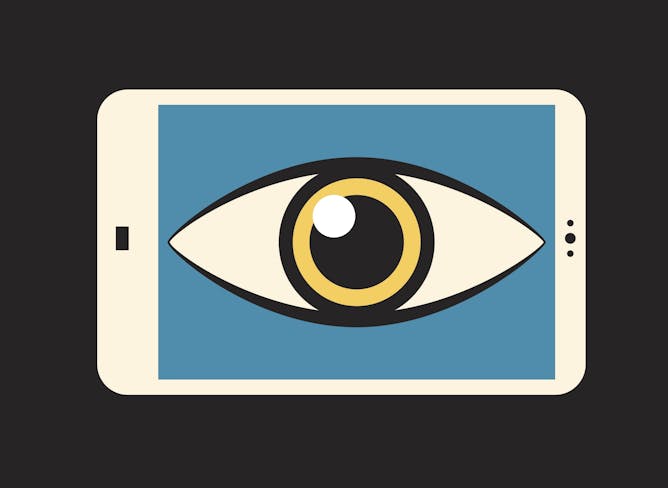
By using technology to curb the spread of COVID-19, governments undertake the risky venture of undermining human rights.
(Shutterstock)
Wendy H. Wong, University of Toronto
As governments consider the use of surveillance technologies to trace and contain the spread of COVID-19, it is important to consider human rights in the implementation.
|
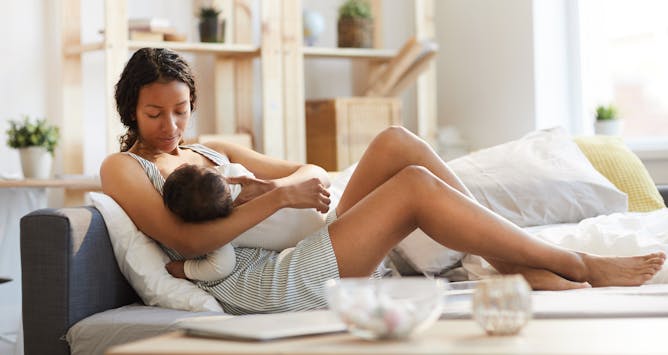
Community support programs for breastfeeding have changed under COVID-19 restrictions.
(Shutterstock)
Merilee Brockway, University of Manitoba; Sarah Turner, University of Manitoba
There is no evidence that the coronavirus is transmitted through breast milk, and breastfeeding is encouraged during COVID-19. However, the support available to new mothers has changed dramatically.
|
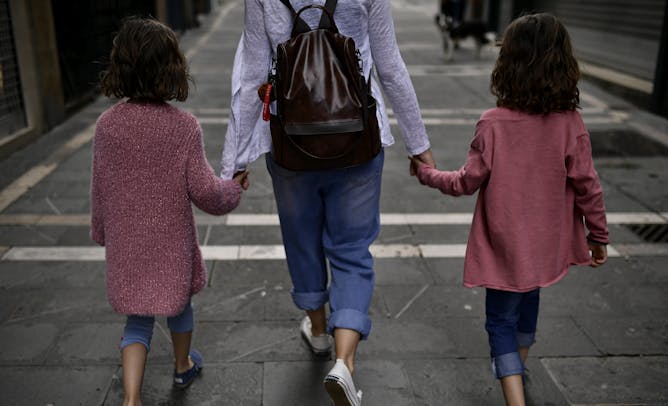
A family go for a hand-in-hand walk along a street of the old city, in Pamplona, northern Spain, April 27, 2020, as some social distancing rules are relaxing after weeks of quarantine.
(AP Photo/Alvaro Barrientos)
Carolyn FitzGerald, Wilfrid Laurier University
We've got this: parents can build kids' resiliency in by focussing on what's going well, maintaining some predictability and order, modelling belief in their own abilities and caring for themselves.
|
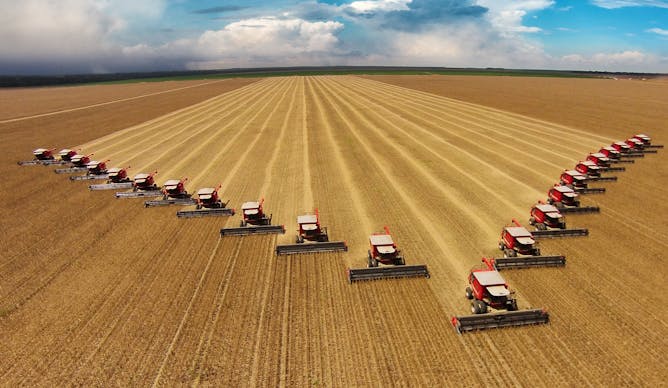
Harvesters work on a soybean harvest in the state of Mato Grosso, Brazil.
(Pixabay)
Rhonda Ferguson, York University, Canada
For the second time this century, crises have led to calls to transform our global food system. We can start with restructuring the global food trade so that it complements local food systems.
|
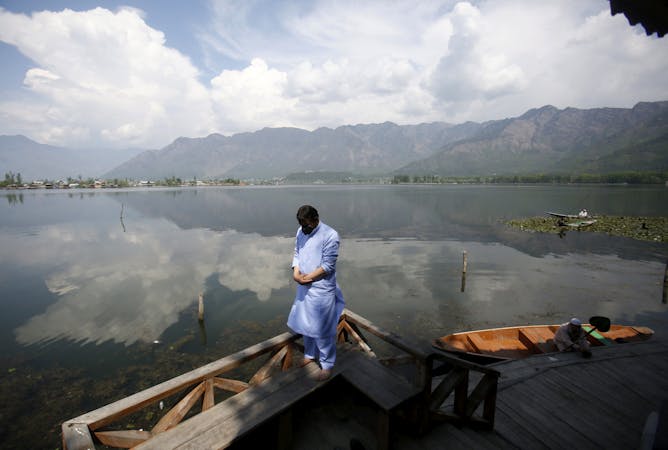
A Kashmiri Muslim man offers prayers on the banks of Dal Lake on the second day of Ramadan during lockdown in Srinagar, Indian occupied Kashmir, April 26, 2020.
(AP Photo/Mukhtar Khan)
Omer Aijazi, University of Toronto
Although the United Nations has called for a global ceasefire during the pandemic, Kashmiris are bracing for a new wave of violence as India accelerates its settler-colonial ambitions.
|
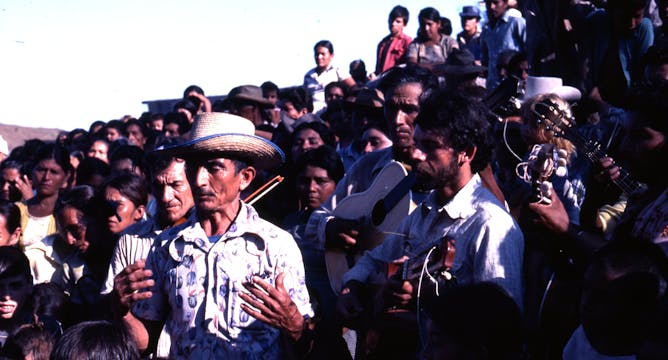
Singer-songwriter Norberto Amaya, pictured in the hat, singing at a refugee camp for El Salvadorians fleeing their country’s civil war, in La Virtud, Honduras, 1981.
(Photo courtesy of Meyer Brownstone/Oxfam Canada)
Emily Abrams Ansari, Western University
People rely on familiar music to get through difficult times. Refugees from El Salvador's civil war used music to light up memories of their past.
|
Non-Coronavirus News
|
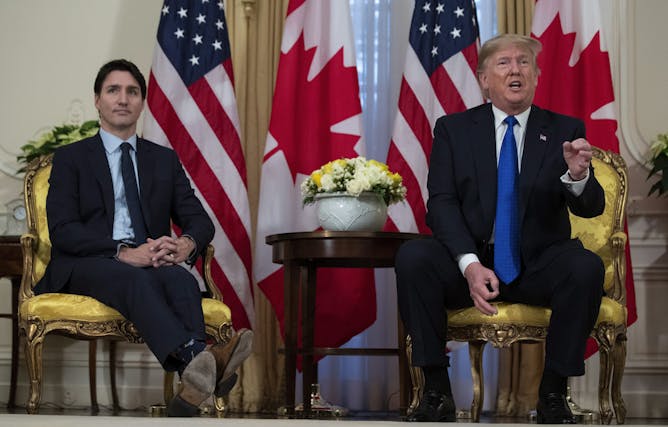
U.S. President Donald Trump speaks during a meeting with Prime Minister Justin Trudeau in London in December 2019.
(AP Photo/ Evan Vucci)
Blayne Haggart, Brock University
Canada’s free-trade obsession has made us overly reliant on global supply chains. That's a huge unforced error given that 19 years ago, 9/11 showed us just how quickly border policy can change.
|
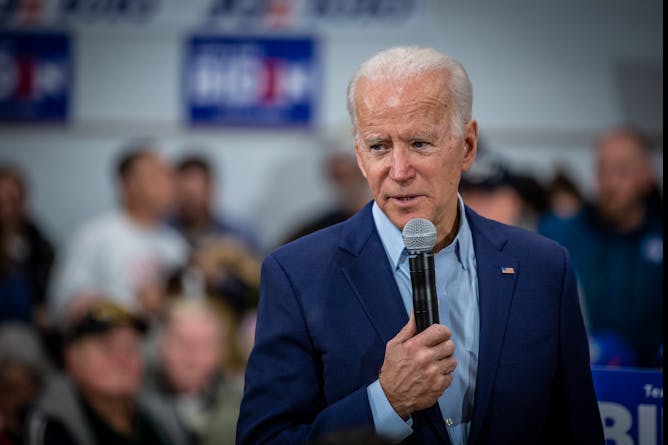
Who’s on his list? And would it matter?
Phil Roeder/Flickr
Christopher Devine, University of Dayton; Kyle C. Kopko, Elizabethtown College
Vice presidential picks don't have much direct effect on campaigns, but can give voters insight on a candidate's judgment and leadership ability. Early Cabinet selections are likely to be similar.
|
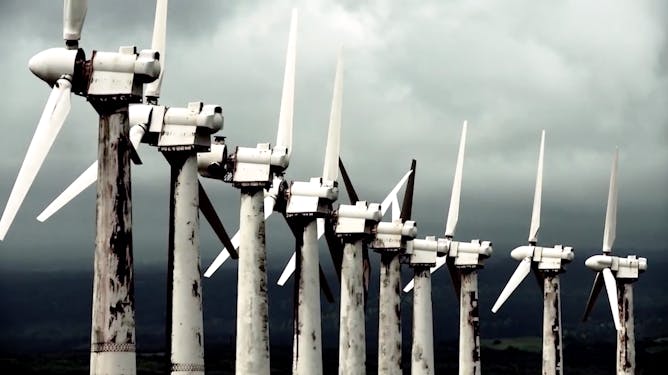
planetofthehumans.com
Ian Lowe, Griffith University
Environmentalists say the new film has caused untold damage at a time when change has never been more urgent. So why is it so controversial?
|
La Conversation Canada
|
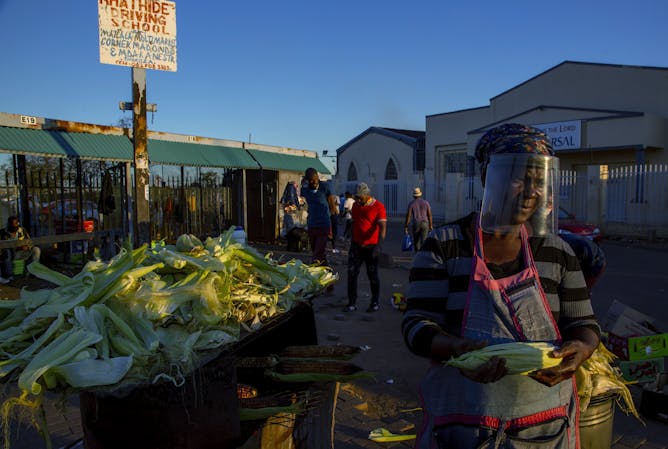
Gogo Zitha, portant un écran facial protecteur pour se prémunir contre la propagation du nouveau coronavirus, vend du maïs grillé au coin de la rue à Katlehong, à l'est de Johannesburg, en Afrique du Sud, le mercredi 6 mai 2020. L'Afrique du Sud a commencé à assouplir progressivement ses mesures strictes de confinement le 1er mai, alors que les cas confirmés de Covid-19 continuent d'augmenter.
Photo AP/Themba Hadebe
Valentin MIGABO, Université du Québec à Montréal (UQAM)
La pandémie de Covid-19 suscite des réactions diverses en Afrique. Certains pays ont adopté des mesures strictes de surveillance tandis que d'autres croient encore que la prière les sauvera.
|
| |
| |
| |
| |
| |
| |
|
|
|
|
|
|
|